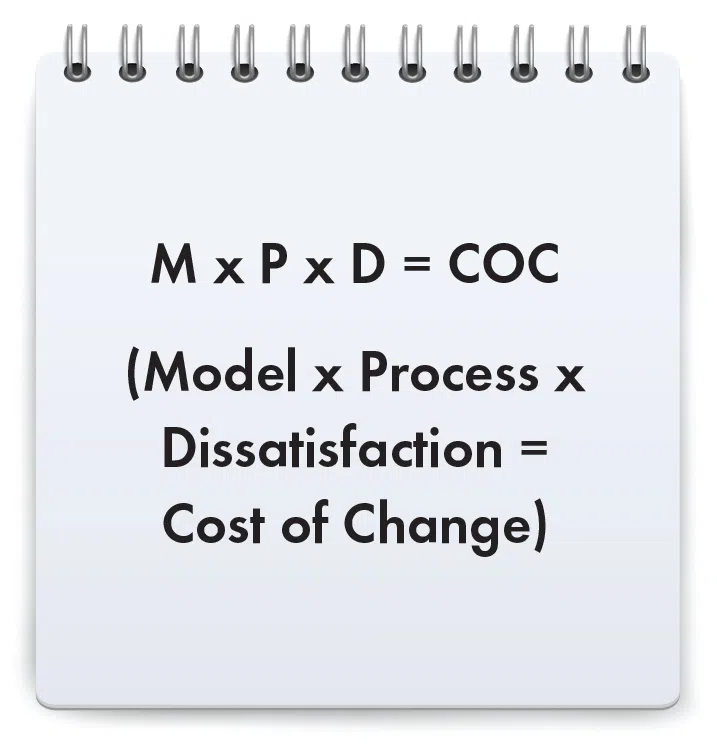Now is the time to incorporate or improve upon these ten practices.
Some time in the future — hopefully in the near future — this recession will end. Don’t expect your role as a leader to become easier, though. Many elements of your business will be different, and you will need to respond differently. Going back to “business as usual” is tempting, but it will not be good for business.
The attitudes and behavior of your customers will be among the biggest changes. They have learned to “do without,” and when they do spend money, they are much more prudent. Expect your customers to:
• Buy what they need, not what they want.
• Expect a high level of value for their investment.
• Shop online.
• Buy from stable, established companies.
• Buy from companies that have a record of solid performance.
These behaviors may — and probably will — become permanent. Be prepared to respond to them. Don’t forget, however, about changes that were already underway before the recession, and changes in business-to-business relationships prompted by the recession. These include:
• Women and minorities increasing their purchasing power and influence, especially for major purchases.
• A smaller and tighter credit market.
• An expanded government role in business on all levels — local, state, and federal.
• Accelerated technological changes that lead to new products and new product capabilities.
Considering this altered business landscape, now is a good time to refocus your leadership role on making purposeful changes that will grow your business. Here are 10 practices that you should start doing or work on doing better. These are based on my many years in the hvacr industry as a business owner, consultant, and author; and on the advice of other authors who have been featured on the pages of HVACR Business.
If a contractor wants to be competitive, these practices are no longer optional; they are mandatory.
1) Broadening your portfolio of products (not brands) and services.
2) Following up on sales presentations where the customer didn’t invest with your company. Just because they didn’t accept your proposal does not mean they accepted another company’s. They simply may be delaying a decision.
3) Operating at the customers’ convenience by extending your hours of operation: 8 a.m. to 5 p.m. Monday through Friday is for new construction contractors, not retail contractors. Conducting business from 7 a.m. until at least 7 p.m. Monday through Friday and most of Saturday is consistent with retailing and something we were doing in my first contracting company 30 years ago. It resulted in adding a significant number of new customers.
4) Offering consumer financing on all of your products. You need at least a couple of typical finance companies’ programs and should, in addition, try to arrange a program through a local bank. Also, you should accept all major credit cards.
5) Focusing on your service agreement program. As I’ve often said, the road to success in hvacr retail contracting is paved with service agreements. It’s how you form relationships with your customers and demonstrate your ability. They’ll realize using another provider means they are taking a risk. Your benchmark is 1,200 residential service agreements per $1 million in residential retail revenues.
6) Being more diligent in your hiring decisions. Take the time to check candidates out thoroughly and be reasonably certain that you’re selecting the right people. Slower hiring decisions result in less “de-hiring” decisions. Mediocre coworkers result in mediocre companies.
7) Developing and maintaining a highquality, ongoing co-worker training program including technical, sales, processes, and customer-relations training.
8) Holding regular customer focus group meetings. Encourage your customers to tell you how your company is performing and get their advice on how the company could better serve them and obtain new customers.
9) Tweaking your Web site to respond to changes in societal issues, such as the economy or the environment, that affect customers. Most hvacr contractors have Web sites, but not many have quality content-driven Web sites. Web sites that talk only about your products and services are not adequate for today’s — and certainly tomorrow’s — customers. Consider product and services information, as well as company information, to be basic content — so you need more. Consider EPA information, energy consumption data, and environmental information. Additionally, you should have a customer store; an easy way for customers to schedule tuneups, service calls, and presentations; a search-engine-optimization program; and other general information such as home-comfort-related news, which updates regularly. Forester Research reports that 92% of consumers use the Internet while making a purchase decision. This trend cannot be ignored.
10) “Touching” your customers frequently. People are busy, and during bad economic times they can be distracted. Much of the time, they are thinking about things other than hvacr equipment maintenance, or even their health or comfort. You need to remind them that these things are important. Use newsletters (both direct mail and electronic), tune-up reminders with your service-agreement customers, and follow-up “happy calls” after your completed service calls, tune-ups, and installations (these are calls where you make sure the customer is happy with the work done).
Now is the time to schedule strategic planning for your company. Be sure to include how you will address the above-listed 10 items.
Ron Smith is a well known leading authority in the HVACR industry. He has over 45 years of experience as a contractor, franchisor, consolidator and consultant. Ron is also the author of HVACR Spells Wealth and HVAC Light Commercial Service Agreements. Both can be ordered at www.ronsmithhvac.com or by calling 615-791-8474.



.webp)
